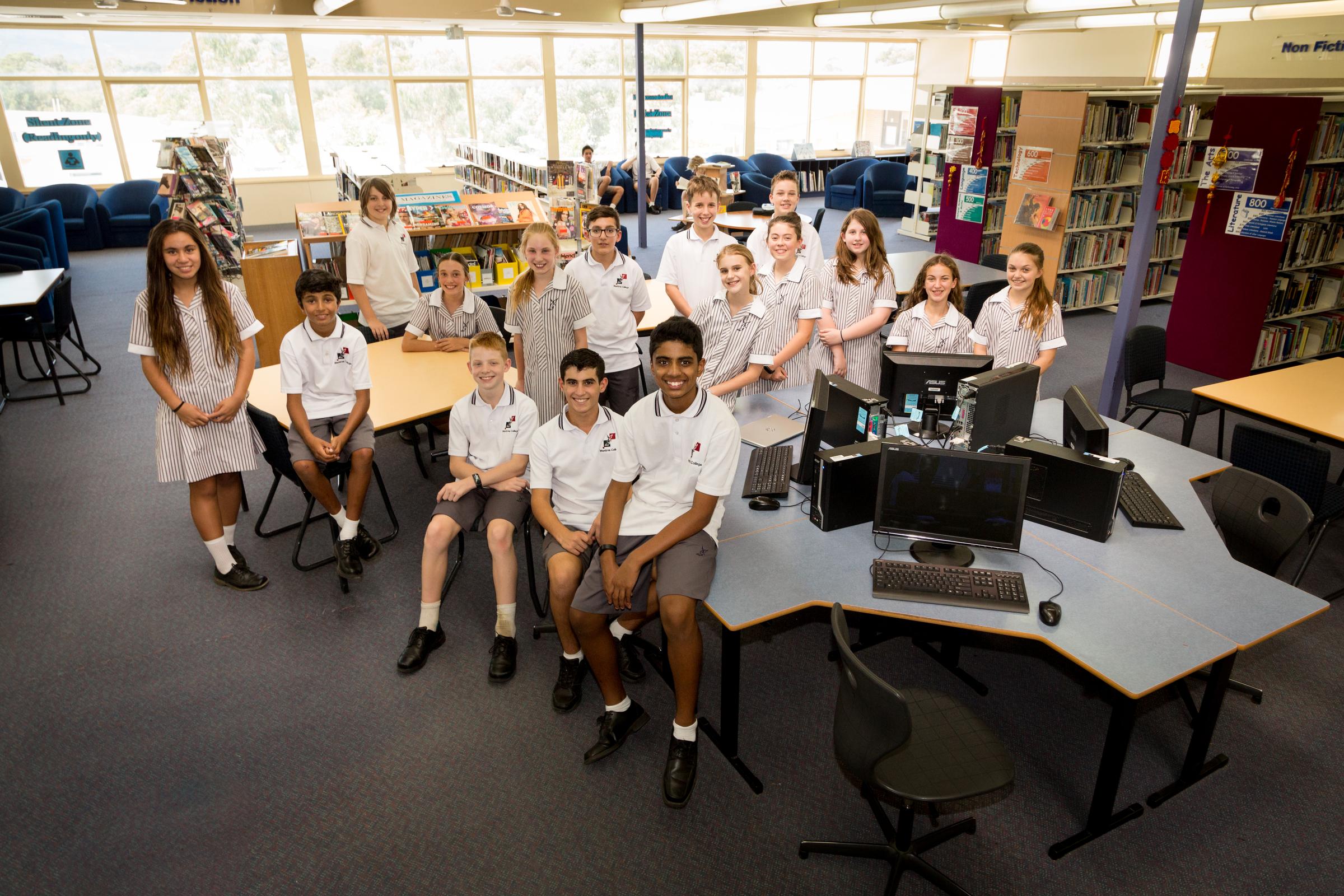Middle Years

BEING CYBER SMART
Growing up in today’s society is different in many ways to growing up even 10 years ago. Digital technology has been embraced by society, and with this we have begun to see forms of digital communication and social media dominate how many people – particularly young people – communicate with each other.
Recently, we had Kelly McAuliffe, from Internet Safe Education, facilitate a parent and student information evening on cyber safety and cyberbullying. The presentation was well received from all who attended and explored a range of relevant and important topics. Kelly primarily focused on empowering parents and students to make informed choices about how digital technology is used in their lives. Below I have summarised some of the key messages from the presentation.
- Having the newest technology doesn’t mean that you are safe online – it is like having the newest cars with the most up-to-date safety features. You are safer in it, however, accidents can still occur.
- Ensure privacy settings on all social media sites are set up so that nobody has access to you if you don’t want them to
- Remember that knowing someone at school or through a friend of a friend does not make them your friend. Consider who you become ‘friends’ with online – do you really want this person to have access to you and know everything about you? Think about who these ‘friends’ might share information with.
- None of the information that you post online is private. Before posting information, comments or images online, ask yourself would I be willing to place this on the notices boards around the school?
- Don’t respond to messages online or via text when you are angry or hurt – either to strangers or people you know. This often encourages them to continue harassing you because they have received a response they want
- If someone sends you something you don’t like, or you are tagged in something that you feel disrespects you, log out and stop messaging
- Instead of responding, always remember that you have the option to block, delete or report anyone who is harassing you online or on your phone
- Share this information with a trusted adult so that you’re able to get support
- We all leave a digital footprint now and whatever is posted online does not disappear – even if it is deleted. The same is true of images that are texted to phones or via apps. Employers now use Facebook as a tool to get to know prospective employees. Would you really want everyone to see what you’re doing or hear what you’re thinking? Does it show your best self?
- Don’t be afraid to shut off your phone when you’re at home – friends do not need to have access to you at all times; you will see them the next day at school anyway and find out what you might have missed the night before
- Have rules around the use of digital technology in the home. E.g. devices can only be used at certain times or in particular spaces.
Parents found the evening very useful.
"Our boys were engaged and interested in the content, and the strategies presented, they were very useful to us as a family. In particular the information about location services in apps is something we followed up with the kids straight after the presentation"
"Found the presentation to be very interesting not only for us as parents but also to our daughter"
Darren Hoogkamer
Leader of Middle Years
